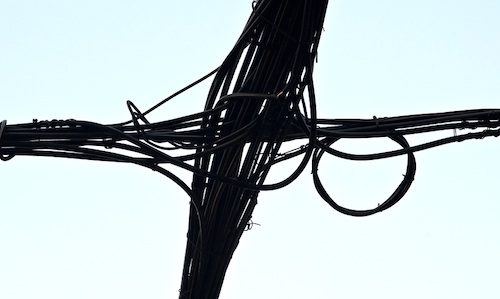
Internet service providers have slammed Mweb’s decision to cut off its transit links, saying the company ought to have engaged in discussions instead of taking the fight to the media.
Last week, MWeb cut off its transit links with Telkom’s wholesale Internet access provider Saix, while at the same time preventing users of some other service providers from accessing content on the MWeb network.
MWeb wants to encourage local providers to peer with it, instead of charging it for transit on networks. The company says it hopes it will increase competition in the market and lower Internet prices for the consumer.
Peering is effectively interconnection in the Internet space. Internet providers make certain agreements with each other to allow other providers’ customers to access content on networks.
Worldwide, some service providers peer while others charge transit fees.
Typically, Internet providers that carry the same amount of content would share roughly equal amounts of traffic between their networks and so would engage in a peering model.
Often smaller providers are charged for transit links because their users tend to consume more content from larger networks than the other way around.
This has been the case for MWeb for years. However, since it launched its uncapped service and started supplying content from sister company MultiChoice on its network, the company’s traffic has started to grow sharply.

MWeb ISP CEO Derek Hershaw says transit is simply too expensive and MWeb had to make a call. He says local transit costs three to five times what it costs on international links.
But several service providers have reacted angrily to MWeb’s move.
Vodacom executive Jannie van Zyl says MWeb’s actions are confusing, especially since Vodacom is in the process of implementing a peering arrangement with MWeb.
“We are fully supportive of peering with MWeb and were in the final planning stages of doing this, so we don’t understand its unilateral action taken on Thursday,” he says.
He says Vodacom has taken steps to limit the effect on its customers and, despite MWeb’s decision, the agreement will be finalised.
MTN Business has also had to make plans for its customers. Infrastructure and technology GM Edwin Thompson says he is disappointed MWeb chose to make a big deal of its decision in the media instead of taking the matter directly to other service providers.
“It just makes us look like the bad guy when we have never even had a relationship with MWeb,” he says.
But Hershaw says MWeb has been in discussions with providers for a long time and not had any joy from the talks.
Thompson confirms that MWeb did approach it to begin discussions about peering. However, he adds that MWeb never provided the information MTN Business needed to determine whether peering made financial sense.
Meanwhile, Internet Solutions (IS) has decided to allow MWeb a trial peering agreement. IS MD Derek Wilcocks says the company will peer for a few months to measure traffic volumes from MWeb.
“According to our agreement, if the traffic ratio is more than one-and-a-half times in either direction, there will be charges added,” Wilcocks says.
Telkom has taken a less conciliatory approach. It has slammed what it calls MWeb’s “unilateral measure”, describing it as “not in the spirit of the Internet community”.
Telkom says it stands by the prices it charged MWeb, arguing they were reasonable and based on international models.
“MWeb’s invitation to peer was considered against these principles. However, peering is not meant to amount to the free provisioning of network infrastructure by one party to another since someone has to cover the capital expenditure of the network,” Telkom says.
The operator has also slammed what it describes as MWeb’s use of the media to fight the peering issue, saying it is not a constructive way of approaching the situation. — Candice Jones, TechCentral
- Subscribe to our free daily newsletter
- Follow us on Twitter or on Facebook




